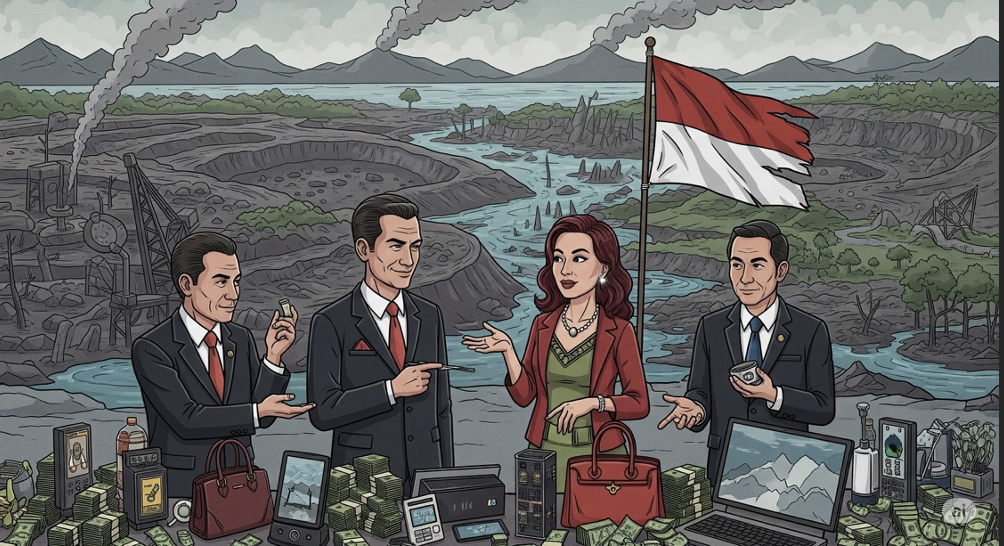Corruption Issues: Tackling Malfeasance in Indonesia Politics — Insights You Can’t Miss
JAKARTA, turkeconom.com – Corruption issues are a significant challenge in Indonesia, deeply embedded in the political landscape and affecting governance at various levels. Despite ongoing efforts to combat malfeasance, the persistence of corrupt practices undermines public trust and hinders national development. This article delves into the nature of corruption in Indonesia, its implications for governance, and the strategies being implemented to tackle these pressing issues.
Understanding Corruption Issues in Indonesia

Definition and Types of Corruption
Corruption can be broadly defined as the abuse of power for personal gain, manifesting in various forms, including:
- Bribery: The exchange of money or favors to influence the actions of public officials.
- Embezzlement: The misappropriation of funds entrusted to an official’s care.
- Nepotism: Favoring relatives or friends in political appointments or contracts.
Historical Context
Corruption issues in Indonesia have historical roots dating back to the Suharto regime (1967-1998), characterized by widespread nepotism and cronyism. Although the fall of Suharto marked a turning point, the legacy of corruption continues to affect the political climate today.
The Impact of Corruption Issues on Governance
Erosion of Public Trust
Corruption issues erode public trust in government institutions, leading to disillusionment among citizens. When officials engage in corrupt practices, it undermines the legitimacy of the government and its ability to serve the public effectively.
Economic Consequences
The economic implications of corruption are profound, as it diverts public resources from essential services such as education, healthcare, and infrastructure, ultimately stunting economic growth and development.
Social Inequality
Corruption exacerbates social inequality, as those in power often prioritize their interests over the needs of marginalized communities. This leads to a cycle of poverty and disenfranchisement, further entrenching systemic issues within society.
Tackling Corruption Issues in Indonesian Politics
Anti-Corruption Institutions
Indonesia has established various institutions to combat corruption, including:
- The Corruption Eradication Commission (KPK): Formed in 2003, the KPK is pivotal in investigating and prosecuting high-profile corruption cases involving government officials and business leaders.
- The Supreme Audit Agency (BPK): Responsible for auditing public finances, the BPK promotes transparency and accountability in government spending.
Legal Framework
The legal framework surrounding corruption includes laws that criminalize corrupt practices and establish penalties for offenders. However, enforcement remains a significant challenge due to systemic issues within the judiciary and law enforcement agencies.
Public Awareness and Advocacy
Raising public awareness about corruption issues is essential for fostering a culture of accountability. Civil society organizations and media play a vital role in educating citizens about their rights and encouraging them to report corrupt practices.
Grassroots Movements
Grassroots movements have emerged across Indonesia, advocating for transparency and accountability in governance. These movements mobilize citizens to demand reforms and hold officials accountable for their actions.
Challenges in Combating Corruption Issues
Political Will
One of the most significant challenges in tackling corruption issues is the lack of political will among some government officials. When those in power are complicit in corrupt practices, efforts to combat malfeasance often stall.
Weak Enforcement Mechanisms
Despite the establishment of anti-corruption institutions, enforcement mechanisms remain weak. Corruption cases are often met with resistance, and perpetrators may evade justice due to their connections and influence.
Cultural Factors
Cultural attitudes toward corruption can also impede efforts to combat malfeasance. In some cases, corrupt practices are normalized or viewed as a necessary means of survival within a flawed system.
Successful Strategies for Addressing Corruption Issues
Strengthening Institutions
To tackle corruption issues effectively, Indonesia must strengthen its anti-corruption institutions. This includes ensuring that the KPK and other agencies are adequately funded, staffed, and empowered to carry out their mandates without political interference.
Enhancing Transparency
Promoting transparency in government operations is crucial for reducing opportunities for corruption. Implementing open data initiatives and requiring public officials to disclose their assets can help foster accountability.
Engaging the Public
Encouraging citizen engagement in governance can create a more accountable political environment. Initiatives that promote public participation in decision-making processes empower citizens to hold their leaders accountable.
The Role of International Cooperation
Global Partnerships
Corruption issues are a global concern that requires international cooperation to address effectively. Indonesia can benefit from partnerships with other countries and international organizations to share best practices and resources in combating corruption.
Development Aid
International development aid often comes with conditions related to governance and anti-corruption measures. By aligning aid with anti-corruption efforts, donor countries can incentivize reforms and promote accountability.
Conclusion
Corruption issues in Indonesia pose significant challenges to governance, economic development, and social equity. While progress has been made in combating malfeasance, ongoing efforts are necessary to address the systemic issues that enable corruption to persist.
By strengthening anti-corruption institutions, promoting transparency, and engaging the public, Indonesia can take meaningful steps toward a more accountable and equitable political system. Tackling corruption is not only essential for restoring public trust but also for ensuring a brighter future for all Indonesians.
Sharpen Your Skills: Delve into Our Expertise on Politic
Check Out Our Latest Piece on Regional Autonomy!











